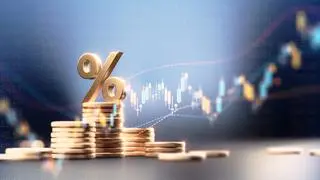Each year Warrant Buffet's annual shareholder letter is eagerly awaited for by its shareholders and financial enthusiasts alike. In his latest letter, the 81-year old billionaire talks about his successor, investment mistakes, gold investing and share buybacks among other things. Written in his characteristic simplicity and humour, the letter offers many interesting insights into the world of investments, as the Oracle of Omaha sees it.
“Charlie Munger, Berkshire's Vice-Chairman and my partner, and I feel good about the company's progress during 2011” started Mr Buffet as he highlighted the conglomerate's performance during the year. Berkshire Hathaway holds over $100 billion in investments, including major positions in blue-chip behemoths such as Bank of America, Coca-Cola, Wells Fargo and American Express.
Succession planning
“On my death, Berkshire's ownership picture will change but not in a disruptive way” wrote Buffet. His job will be split into two parts — one executive will become CEO and will be responsible for operations, while the responsibility for investments will be given to one or more executives. While the CEO remains a mystery man/woman, Todd Combs and Ted Weschler, who joined Berkshire last year, will be given the investment portfolio. “Each will be handling a few billion dollars in 2012, but they have the brains, judgment and character to manage our entire portfolio when Charlie and I are no longer running Berkshire.”
Investment Mistakes
It isn't every day that a man touted for investment acumen publicly acknowledges his mistakes. In the letter, Buffet owns up to some gaffes. “A few years back, I spent about $2 billion buying several bond issues of Energy Future Holdings, an electric utility operation serving portions of Texas. That was a mistake – a big mistake”. With natural gas prices tanking and continuing to remain depressed, Berkshire had to write down $1 billion in 2010 and $390 million last year.
“Last year, I told you that a housing recovery will probably begin within a year or so. I was dead wrong”, he wrote. He however is still confident that the housing market will return over time. He said that while household formation was slow in 2008 and 2009, the supply/demand equation has now reversed. Adding a little humour, he wrote, “people may postpone hitching up during uncertain times, but eventually hormones take over. And while “doubling-up” may be the initial reaction of some during a recession, living with in-laws can quickly lose its allure.”
Gold
Buffet doesn't like currency-based investments, which according to him are among the most dangerous in today's scenario even though they are thought of as “safe”. But, he isn't a great fan of gold either. Gold has two significant shortcomings - being “neither of much use nor procreative”. Taking a jibe at the gold price run up, he wrote that as “bandwagon” investors join any party, they create their own truth for a while, but bubbles blown large enough inevitably pop.
“My own preference is investment in productive assets, whether businesses, farms, or real estate”. Whether the currency a century from now is based on gold, seashells, shark teeth, or a piece of paper (as today), people will be willing to exchange a couple of minutes of their daily labor for a Coca-Cola or some See's peanut brittle. Berkshire has investments in both the companies.
Share buybacks
After having spent not even a dime of cash for dividends or share repurchases in the last 40 years, Berkshire spent about $67 million in buybacks last year. In September 2011, it announced share buyback at a price of up to 110 per cent of its book value.
“Charlie and I” favour repurchases when two conditions are met, he wrote. One, the company has ample funds to take care of the operational and liquidity needs of its business. Two, its stock is selling at a material discount to the company's intrinsic business value, conservatively calculated.
When Berkshire buys stock in a company that is repurchasing shares, it hopes that the earnings of the business will increase at a good clip for a long time to come while its stock underperforms in the market for a long time. “If you are going to be a net buyer of stocks in the future, either directly with your own money or indirectly, you are hurt when stocks rise,” he explained.
Berkshire has $11 billion invested in IBM, which has announced a five-year plan to spend as much as $50 billion in share buyback.







Comments
Comments have to be in English, and in full sentences. They cannot be abusive or personal. Please abide by our community guidelines for posting your comments.
We have migrated to a new commenting platform. If you are already a registered user of TheHindu Businessline and logged in, you may continue to engage with our articles. If you do not have an account please register and login to post comments. Users can access their older comments by logging into their accounts on Vuukle.